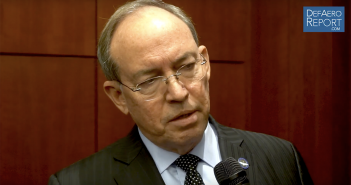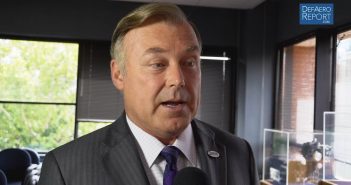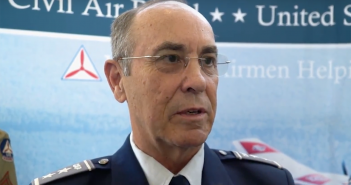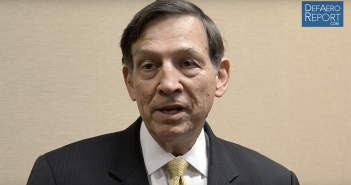
Naval Submarine League’s Oliver on 2017 Symposium
Capt. Tim Oliver, USN Ret., executive director of the Naval Submarine League, discusses the organization’s mission, his takeaways from its 2017 annual symposium and industry update and more during a Nov. 2, 2017, interview with the Defense & Aerospace Report at the event in northern Virginia.

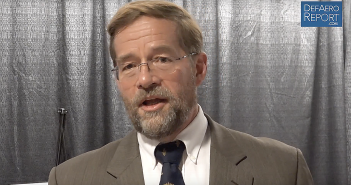

![Defense & Aerospace Business Report [January 8, 2018]](https://defaeroreport.com/wp-content/uploads/2017/06/PodcastTile-2-351x185.gif)
